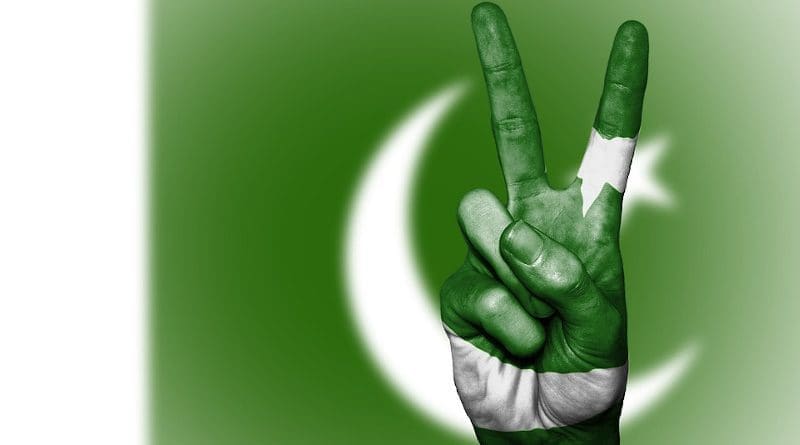Plight Of Political Prisoners In Pakistan – OpEd
By Zafar Iqbal
Prominent historian and philosopher Noam Chomsky and a dozen other leading authors and activists have appealed for the immediate release of five political prisoners who have languished behind the bars in Pakistan’s northern Gilgit-Baltistan region for raising the voice of victims of climate change.
Noam Chomsky and other 12 major personalities of academia, politics, activism and journalism have called on the Government of Pakistan to drop the charge it has manufactured against a leftist political worker Baba Jan and his four fellow activists. The petition urges the Pakistani regime ‘to treat them as political prisoners-not as terrorists.’ Tariq Ali, Noam Chomsky, David Barsamian, Simon Crithcley R C Young, Farooq Tariq and others issued the appeal in order to highlight the miseries of Pakistani campaigners who have allegedly suffered from state torture in the jail and access of their lawyers has been restricted.
Progressive Youth Movement Chief Organiser Baba Jan, and his colleagues have been charged under Pakistan’s Anti-Terrorism Ordinance (ATO). Pakistani authorities mostly use this controversial law against Taliban and Al-Qaida suspects and insurgents who fights a lethal fight against Pakistani forces specifically in its northern region and elsewhere in the country through suicide attacks.
Conversely, ill- fated five political prisoners are not the terrorists who should be treated under the Anti Terrorists Courts. In reality, they have been vocal sympathizers of a downtrodden small community of victims of climate change which have suffered from a natural disaster- Atta Abad Landslide struck the northern region two years before.
In January 2010, twenty people were killed, 1000 displaced and over 100,000 people affected in Pakistan’s northern Gilgit Baltistan when a newly formed lake caused by deforestation, soil erosion and climate change blocked the flow of the Hunza River for many months.
The incident which has been described as one of the most significant landslide events to have occurred in the last two decades, also caused $US 60 million loss in regional trade by disrupting the essential Karakoram highway (KKH), which links Pakistan with China.
In the wake of the Atta Abad tragedy, Mr. Baba Jan and his fellow colleague had campaigned for the rights of the displaced people who were not compensated by the government. In a similar protest rally, two protesters were killed when Pakistani police opened fire on agitators who were protesting on the visit of the Chief Minister of the region.
So far the government has failed to probe the killing of civilians; however, in this case five political activists have been put behind the bar by the courts.
Meanwhile, Pakistani authorities have been accused for severely torture of these prisoners. Local human rights groups and political parties express concern over unfair trial and inhumane treatment with the political activists.
Pakistan’s independent watchdog Human Rights Commission of Pakistan (HRCP) reports that Baba Jan was reportedly exposed to severe torture, resulting in two broken fingers and injuries to his head and other parts of body.
“Five political activists in the Gilgit Jail must not be denied basic rights and due process. Those accused of torturing prisoners must be punished”, demands Mis Zohra Yusuf, the chairperson of HRCP.
A fresh medical examination carried out after the frequent appeals of the political groups and family members, confirmed that Baba Jan has a broken finger. Hence, Hong Kong based Asian Human Rights Commission calls to conduct an independent inquiry in to the torture of the victims during jail custody and ill treatment.
“Pakistani law enforcement agencies responsible for conducting illegal actions and torture must be prosecuted,” says an urgent appeal issued by the AHRC which also urges for immediate release of political detainees, provide them medical treatment and compensation for their ordeal.
Observers believe that recent unjustifiable prosecution and harsh persecution of political workers in Pakistan makes a mockery of the country’s judicial system and situation of political rights.
Bizarrely, the same anti terrorism laws have acquitted the majority of perpetrators of the most deadly terrorist attacks which have taken lives of innocent civilians.
A US State department report has already raised alarms over Pakistan’s fragile judicial system where acquittal rate of prosecuting suspected terrorists has been reported as approximately 75 per cent.
In this context, the awful account of Baba Jan and his comrades not only questions the legitimacy of Pakistan’s pathetic legal infrastructure but it also demonstrates the vulnerability of human rights in the country.


Thank you Zafar Iqbal for taking this issue